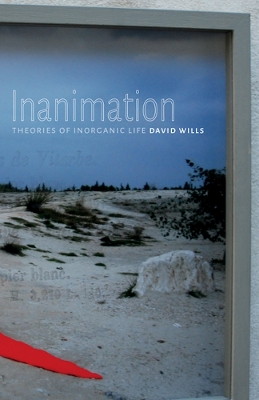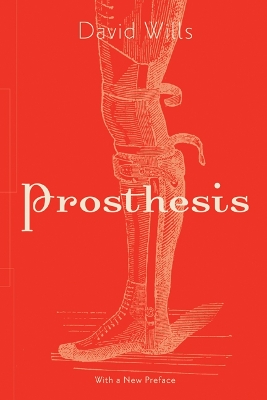Posthumanities
3 total works
In this highly original book David Wills rethinks not only our nature before all technology but also what we understand to be technology. Rather than considering the human being as something natural that then develops technology, Wills argues, we should instead imagine an originary imbrication of nature and machine that begins with a dorsal turn-a turn that takes place behind our back, outside our field of vision.
With subtle and insightful readings, Wills pursues this sense of what lies behind our idea of the human by rescuing Heidegger's thinking from a reductionist dismissal of technology, examining different angles on Levinas's face-to-face relation, and tracing a politics of friendship and sexuality in Derrida and Sade. He also analyzes versions of exile in Joyce's rewriting of Homer and Broch's rewriting of Virgil and discusses how Freud and Rimbaud exemplify the rhetoric of soil and blood that underlies every attempt to draw lines between nations and discriminate between peoples. In closing, Wills demonstrates the political force of rhetoric in a sophisticated analysis of Nietzsche's oft-quoted declaration that "God is dead."
Forward motion, Wills ultimately reveals, is an ideology through which we have favored the front-what can be seen-over the aspects of the human and technology that lie behind the back and in the spine-what can be sensed otherwise-and shows that this preference has had profound environmental, political, sexual, and ethical consequences.
David Wills is professor of French and English at the University of Albany (SUNY). He is the author of Prosthesis and Matchbook: Essays in Deconstruction as well as the translator of works by Jacques Derrida, including The Gift of Death.
Inanimation is the third book by author David Wills to analyze the technology of the human. In Prosthesis, Wills traced our human attachment to external objects back to a necessity within the body itself. In Dorsality, he explored how technology is understood to function behind or before the human. Inanimation proceeds by taking literally the idea of inanimate or inorganic forms of life. Starting from a seemingly naïve question about what it means to say texts “live on” or have a “life of their own,” Inanimation develops a new theory of the inanimate.
Inanimation offers a fresh account of what life is and the ethical and political consequences that follow from this conception. Inspired by Walter Benjamin’s observation that “the idea of life and afterlife in works of art should be regarded with an entirely unmetaphorical objectivity,” the book challenges the coherence and limitations of “what lives,” arguing that there is no clear opposition between a live animate and dead inanimate. Wills identifies three major forms of inorganic life: autobiography, translation, and resonance. Informed by Jacques Derrida and Gilles Deleuze, he explores these forms through wide-ranging case studies. He brings his panoptic vision to bear on thinkers (Descartes, Freud, Derrida, Benjamin, Carl Schmitt, Jean-Luc Nancy, Roland Barthes), writers and poets (Hélène Cixous, Paul Celan, William Carlos Williams, Ernst Jünger, James Joyce, Georges Bataille), and visual artists (Jean-François Millet, Jean-Luc Godard, Paul Klee). With panache and gusto, Wills discovers life-forms well beyond textual remainders and translations, in such disparate “places” as the act of thinking, the death drive, poetic blank space, recorded bird songs, the technology of warfare, and the heart stopped by love.
An examination of the presumed opposition between the natural human body and artificial inanimate objects
Prosthesis is a landmark work in posthuman thought that analyzes and explores the human body as a technology, seamlessly integrated (both physically and psychologically) with prosthetics. Here David Wills lays the groundwork for ideas he develops in two of his other books, Dorsality, exploring how technology functions behind or before the human, and Inanimation, giving perspective on what it means to be “alive.”
In Prosthesis, Wills promotes the idea that the human body is open to supplementation by artificial addenda that operate both internally or externally and engage it in an unceasing arbitration with the environment. Questioning the opposition between animate and inanimate along with the logic of the automatic prioritization of living flesh, Prosthesis undertakes these assumptions by studying thematics of artificiality through the writings of Freud, Derrida, William Gibson, Peter Greenaway, and others. In the twenty-five years since its first publication, Prosthesis has been a point of reference in the field of disability studies. It has also been recognized for its “prosthetic” writing, consisting of academic and autobiographical voices and styles that are artificially attached to one another.


